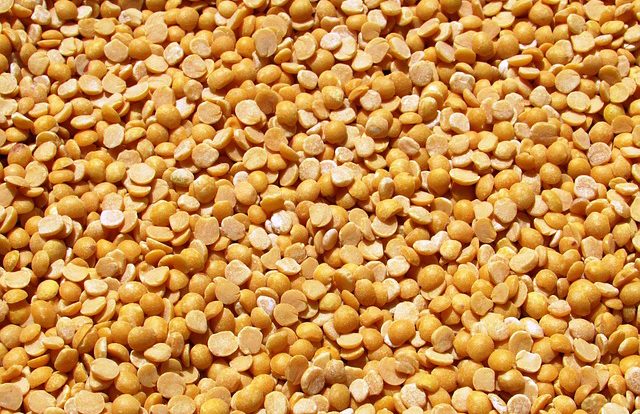January 30, 2018
Ripple Foods, a producer of dairy alternative beverages and food made from pea protein, announced it has successfully raised a $65 million Series C.
This round, which brings the startup’s total funding to $110 million in only two years, was led by Euclidean Capital, and included Goldman Sachs, Fall Line Capital, GV, Prelude Ventures, S2G Ventures, and Khosla Ventures.
Founded in 2014 by Adam Lowry (founder of Method cleaning products) and scientist Neil Renninger, Ripple Foods make plant-based dairy alternatives from “Ripptein”, an ultra-clean protein that the company derives using a proprietary process from peas. “The result is: the purest, cleanest tasting plant-based milk anywhere in the world with a smooth, rich, and creamy texture,” states the company’s website.
In 2016 the company launched its first product called Ripple Milk, and has since rapidly expanded its product line which now includes half and half, and five varieties of Greek yogurt which are all high in protein, low in sugar, allergen-free, soy-free, lactose-free, non-dairy, gluten-free, GMO-free, cholesterol-free, vegan, and use 96 percent less water to produce than dairy, nut, or soy milks.
Queen Pea
In the overall alternative protein category, pea protein has rapidly gained popularity. Extracted from ground yellow split peas, unlike soy or whey, pea protein is not a allergen, is non-GMO, is gluten-free, vegan, kosher, and is comparatively more environmentally friendly than other protein sources. Pea protein also is cholesterol-free, helps control blood pressure, provides a feeling of satiety, and is an effective source of protein for muscle building.
Given this list of benefits, the number of companies integrating pea protein into their products has soared by 195 percent between 2013 and 2016, reports Food Dive.
Pea protein’s growing popularity is also being reflected in the capital being committed to the category.
In October 2016, New York-based pea protein snack chip startup, Proformance Foods, raised $1.2 million in a round led by “one of the 10 largest CPG companies in the world.”
That same year, Google Ventures led a $30 million Series B for Ripple Foods, along with other investors, Prelude Ventures, Tao Capital Partners, Tim Koogle, Khosla Ventures, S2G, Collaborative Fund, Blueberry Ventures, Seth Goldman, and Radicle Impact.
One of the largest commitments was announced in the first days of 2017, when French specialty ingredient supplier, Roquette, announced it was investing C$400 million (US$300 million) – the largest pea protein investment made in the food sector to date, to build the world’s largest pea processing facility in Canada.
However, months later, in September 2017, Hollywood director James Cameron and his wife, Suzy Amis Cameron, announced the formation and launch of Verdient Foods – the largest organic pea protein facility in North America.
Cameron declined to disclose the amount of the investment behind the launch of the company, but told the National Post at the time, “It’s big, but we believe more than worth it or we’d be dumb.”
The plant will be located in Vanscoy, Saskatchewan, and once fully online, will have a capacity of 160,000 tons, making it the largest facility of its kind on the continent.
Most recently, in January of this year, Cargill announced an undisclosed investment in PURIS, the largest pea protein producer in North America, and the two companies have created a joint venture to accelerate the production of plant-based food.
Further downstream we find Ripple Foods.
“Ripple Foods is at the helm of shaping the future of food and reinventing how we use plant proteins to make dairy alternatives,” said Kathy Elsesser, global chair of the Consumer, Retail and Healthcare Groups in the Investment Banking Division of Goldman Sachs. “We are proud to invest in a company that has created one of the fastest growing plant-based product lines and is changing the way people think about how plant-based foods should taste and impact our health.”
Ripple is currently sitting in the cat-bird seat as a leader of a rapidly growing category ahead of the wave of consumer trends. U.S. sales of skim and low-fat cow’s milk declined by 5.5 percent last year, according to IRI, reports Bloomberg. Meanwhile, sales of dairy alternatives continue to climb, with sales rising 3.1 percent last year, according to Nielsen. Taking a wider view, overall non-dairy milk sales in the U.S. have increased by 61 percent over the past five years to top out at $2.11 billion last year.
However, numbers such as these often preclude growing competition, and such is the case for Ripple, as Campbell’s-owned Bolthouse Farms is soon to launch its own line of pea-based dairy alternatives.
-Lynda Kiernan

Let GAI News inform your engagement in the agriculture sector.
GAI News provides crucial and timely news and insight to help you stay ahead of critical agricultural trends through free delivery of two weekly newsletters, Ag Investing Weekly and AgTech Intel.




